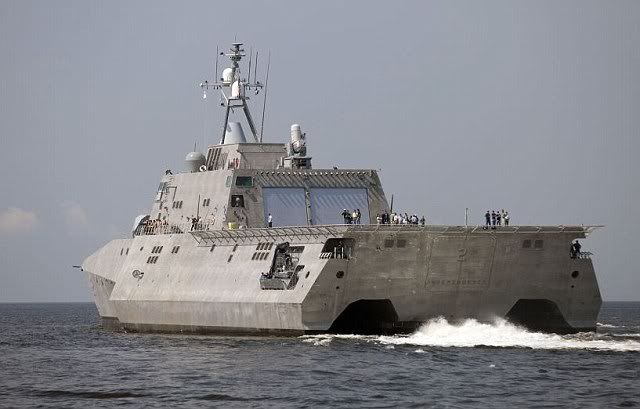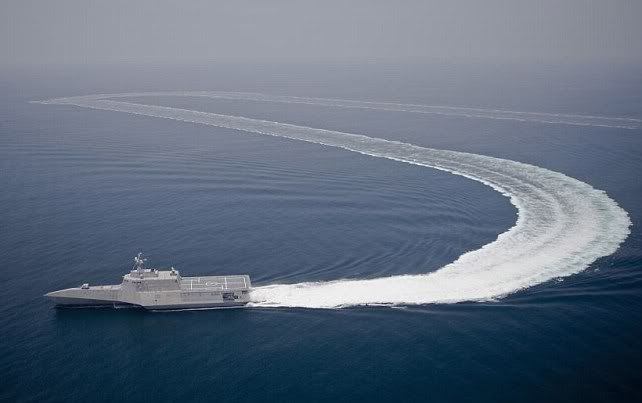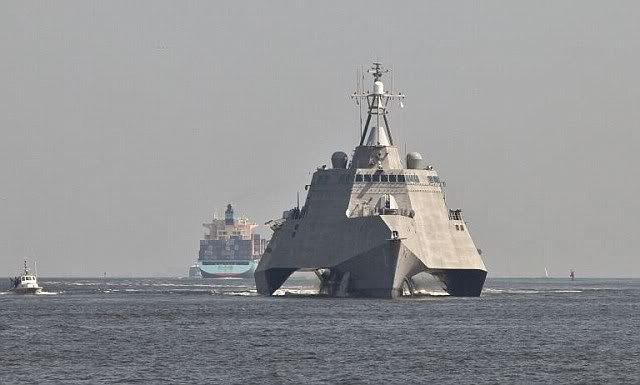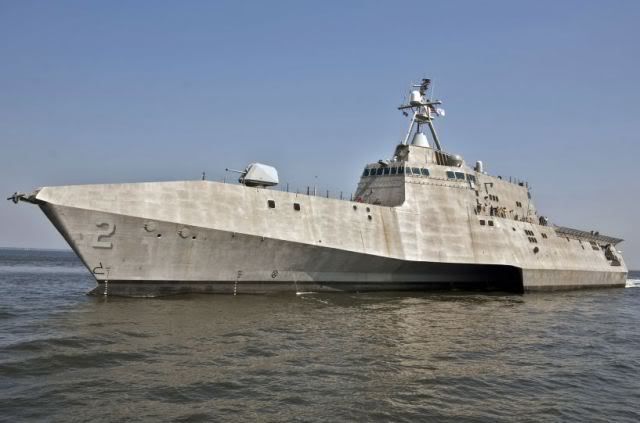The USS Independence (LCS 2) is a small transport vessel designed to undertake multiple missions, which due to its trimaran design can reach speeds of more than 40 knots (46mph).
The 419-foot vessel was built at the Austal shipyard in Mobile, Alabama, has a range of 10,000 nautical miles (19,000 km) and can also operate in water less than 20 feet deep.
The Independence's mission bay is 15,2000 square feet and takes up most of the lower deck.
It can support the operation of two Seahawk helicopters, multiple unmanned aerial vehicles (UAVs), or one CH-53 Sea Stallion-class helicopter.In addition to cargo, the bay can also carry four lanes of multiple Stryker combat vehicles, armoured Humvees, plus their associated troops.
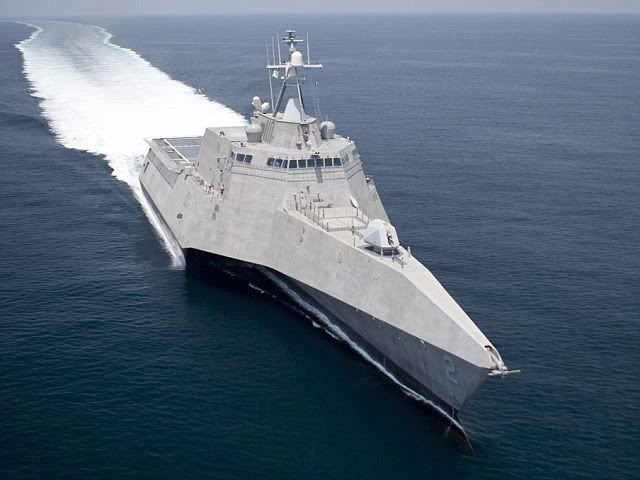
Rapid: The USS Independence (LCS 2) is capable of speeds of more than 40 knots.Impressive: The Independence was built at the Austal shipyard in Mobile, Alabama
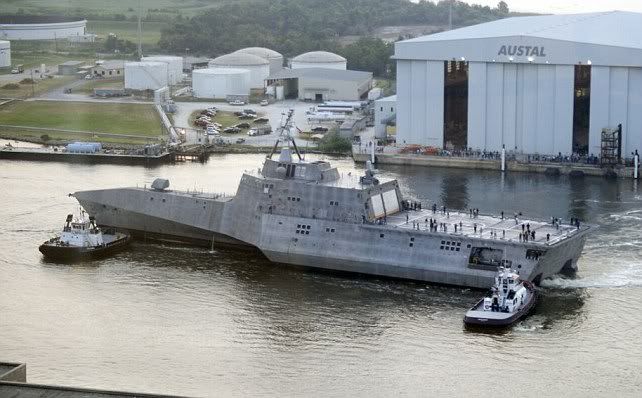
Multi-purpose: The 419-foot vessel can support the opeartion of two Seahawk helicopters, multiple UAVs, or one CH-53 Sea Stallion-class helicopter.
Austal USA won the contract to construct the impressive ship in October 2005 and her keel was laid down in January 2006.
The development of the Independence has experienced a number of problems in recent years with the total projected cost of the ship now standing at $704 million - compared to the original prediction of $200 million.
After christening the ship and completing its maiden voyage, the navy asked for an additional $5.3 million to correct problems found during sea trials.
When the ship was commissioned in January, Admiral Gary Roughead, Chief of Naval Operations, praised its versatility and the support it will provide.
'LCS will have the capability... to secure the littoral regions upon which communities rely on for food, transportation and for their well-being and to protect critical choke-points in the global supply chain, to launch unmanned air, underwater and surface vehicles that will keep our trade at sea and our men and women ashore safe from harm,' he said.
Vice Admiral D.C. Curtis, the Commander of Naval Surface Forces, added: 'LCS is the future of our surface Navy.
'This program will complement the strengths of larger warships. LCS will be a deterrent of green and brown water threats; the flexibility, versatility, and smart design of Independence make it well suited for joint operations.'
